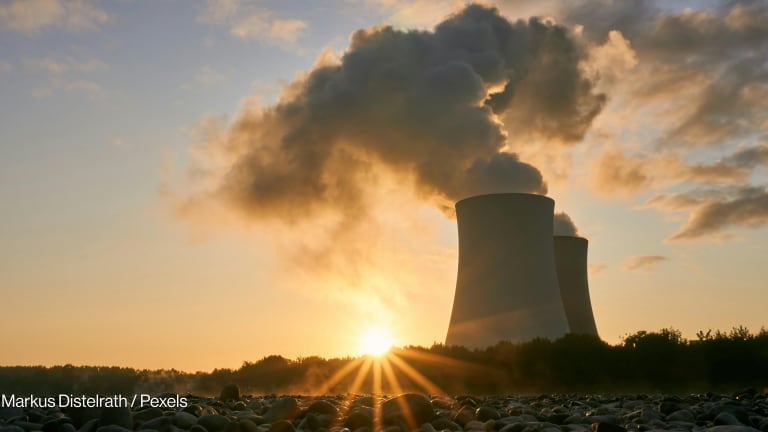
Climate change poses a severe threat to Latin America’s long-term development, and the region’s main development bank is prioritizing funding to address the issue.
The Inter-American Development Bank agreed at its annual meeting last weekend to double the amount that it lends to climate-related projects to 30 percent of its total loan portfolio by the end of 2020. The priority given to climate finance reflects commitments from Latin American countries to boost investment in environmentally sustainable initiatives at the United Nations international climate summit in December.
In addition to its financing target, the IDB indicated that by 2018 all proposed investments will undergo a climate risk screening process to identify opportunities to include climate resilient designs in their planning. The bank also announced the creation of a new Climate Change and Sustainability Department that will focus on the IDB’s work in cities, rural development tourism and natural disasters.
“With the Paris climate conference and the Sustainable Development Goals, we now have the technical and political underpinnings for a new sustainable development paradigm,” IDB President Luis Alberto Moreno said of the bank’s target. “We are joining this effort, convinced of the importance of ensuring that countries are called upon to define and guide the implementation of this agenda.
The IDB plans to make the capital available, but its lending target is subject to demand from its borrower countries and their ability to access additional sources of finance.
Latin America and the Caribbean is one of the most vulnerable regions in the world to climate change. An estimated 600 million people in the region live in areas or work in economic sectors — such as fishing, agriculture or tourism — that are highly vulnerable to climate change.
The IDB projects that economic losses in the region due to climate change could run as high as $100 billion annually by 2050.
To stem those projected losses, the regional development bank estimates that $75 billion to $80 billion in climate investments — from infrastructure to resilient agriculture — will be needed every year from 2020 to 2030. Those demands are around three times more than current levels of climate-related investments in the region, according to the IDB.
The increased commitment to climate change was one of several long-term priorities that shaped the bank’s annual summit. The four-day meeting, hosted by the Bahamas, was held at a particularly sensitive time for many of the region’s economies. The IDB projects that the region as a whole is on pace for its second consecutive year of negative growth in 2016, largely a result of slumping commodity prices and weakened demand from export markets.
In response to low oil prices, the bank proposed that member states cut or reduce costly fuel subsidies and invest the savings in national development initiatives. Looking to the longer term, the IDB identified investments in energy, transport, urban planning and infrastructure as key priorities for boosting sustained and inclusive growth.
The annual meeting also provided an opportunity to publicize the newly revamped Inter-American Investment Corp. — the private sector lending arm of the IDB Group.
“We’re open for business,” said James Scriven, IIC’s general manager, at an opening panel.
Starting in 2013 the bank underwent a multi-year restructuring process to consolidate its various private sector lending activities that were previously spread across several group entities into the IIC’s operations. The so-called merge-out into one organization officially took effect in January and was done in part to reflect the IDB group’s increased focus on private business and development.
“The structure we had before could not solve the problems of the future,” Scriven added.
IIC lending will primarily focus on priority sectors like agribusiness and sustainable energy, transportation and urban infrastructure. But the IIC also plans increased investment in expanding access to financial services for the army of small and medium-sized enterprises many consider the key to unlocking growth across the region.
SMEs make up the lion’s share of businesses in Latin America, as they do in many parts of the world. They are responsible for 80-90 percent of all jobs in the region and account for up to 90 percent of annual business growth, according to the IDB. But the funding gap to finance their operations is estimated at around $250 billion.
Representatives from the IIC said that one of the institution’s key priorities is to assist those businesses in attracting more capital. They plan to do so with a variety of financial products, including more credit guarantees that can de-risk private debt, and by becoming an “anchor” investor in more medium-sized enterprises that want to go public.
The IIC’s managers also expressed interest in issuing more green bonds and social bonds, instruments whose payout to investors are tied to sustainable development targets.
Join Devex to network with peers, discover talent and forge new partnerships in international development — it’s free. Then sign up for the Devex Impact newsletter to receive cutting-edge news and analysis at the intersection of business and development.
Search for articles
Most Read
- 1
- 2
- 3
- 4
- 5








